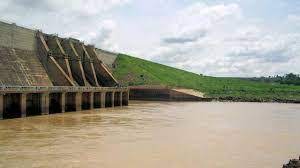Stakeholders in the agricultural sector have called for sustainable alternative animal feed resources as part of efforts to solve the challenges of high cost of feed in the livestock sector.
They lamented the high cost and non-availability of quality livestock feeds across the country recently at the Animal Feed Summit held in Abuja.
The Managing Partner, Sahel Consulting Agriculture and Nutrition, Temi Adegoroye, stressed that achieving food security in Nigeria was a non-negotiable goal that requires collaborative efforts of all stakeholders in Nigeria.
According to him, “We must leverage our comparative advantage to proffering solutions to the challenges in the Animal Feed. As we continue to experience the impact of climate change in Agriculture activities, we need to explore sustainable practices in animal feed production to guarantee farmers access to affordable feed all year round”.
“Over the years”, he said, “Sahel Consulting have been at the forefront, designing innovative programmes and projects that were aimed at sensitizing farmers on the need to adopt pasture production and building a culture of feed buying among small holder ruminant livestock producers in the country.”
Also, the Executive Director, Centre for Journalism Innovation and Development (CJID), Dr Tobi Oluwatola, urged Nigeria to buckle up in the feed production sector as feed represents 70 per cent of livestock production.
He said the goal of the summit was to ensure that in the future, Nigeria achieved self-sufficiency in terms of animal feed production, and to ensure that the country creates jobs as the industry can create 20 million jobs.
“We also hope to ensure that the cost of livestock production in general comes down, and that may mean that there will be a need for some subsidies,” he added.
The Permanent Secretary, Federal Ministry of Agriculture and Rural Development, Dr. Ernest Umakhihe represented by Director Fisheries and Aquaculture, Dr. Imeh Umoh revealed that the animal feed industry in Nigeria was far from meeting national sufficiency in production.
This is despite the fact that the country can produce an average of 5.5million tonnes per annum comprising 85 per cent poultry feeds, and has the potential to grow not less than 50million metric tonnes per annum, if the commercial ruminant and swine feeding sub-sectors were harnessed.
He stressed that the feed sector had the potential to engage over 20 million Nigerians, as the industry was yet to reach 25 per cent of its market size.
Umakhihe noted that Nigeria’s animal feed sector remained underdeveloped, due to high cost of ingredients and other production factors, which resulted in market dislocation and hampered access to products, thereby barring an average farmer out of supply net.
“These challenges have necessitated the need for the National Animal Feed Summit,” he added.




